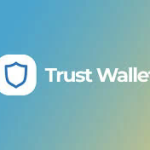An In-Depth Analysis of Trust Wallet: A Comprehensive Guide to Decentralized Cryptocurrency Management
# Introduction
In the rapidly evolving landscape of cryptocurrencies, wallets play a crucial role in managing digital assets. Among various cryptocurrency wallets available today, Trust Wallet has gained significant traction as a reliable and user-friendly option. This article delves deep into the functionality, features, and underlying technology of Trust Wallet, providing an expansive overview for both novice and experienced cryptocurrency enthusiasts.
## What is Trust Wallet?
Trust Wallet was originally launched in 2017 as a standalone mobile wallet for Ethereum and ERC-20 tokens. Its user-friendly interface and robust security features quickly garnered a loyal following. In 2018, Binance, one of the largest cryptocurrency exchanges, acquired Trust Wallet, augmenting its capabilities to support a wider range of cryptocurrencies beyond Ethereum. Today, Trust Wallet is a multi-cryptocurrency wallet supporting Bitcoin, Bitcoin Cash, Litecoin, and over 160,000 other digital assets.
### Key Features of Trust Wallet
1. **Decentralization**: One of the most significant advantages of Trust Wallet is its decentralized nature. Users have full control over their private keys, which are stored locally on the user’s device rather than on a centralized server. This minimizes security risks associated with hacks and theft.
2. **Multi-Currency Support**: Trust Wallet accommodates a vast array of cryptocurrencies. Users can store, send, and receive popular coins and tokens from various blockchain networks, including Ethereum, Binance Smart Chain, and others.
3. **User-Friendly Interface**: The wallet is designed with simplicity in mind, making it accessible to both beginners and seasoned cryptocurrency users. The app features an intuitive layout that allows users to easily navigate through their digital assets.
4. **Built-in DApp Browser**: Trust Wallet provides a decentralized application (DApp) browser, enabling users to access various blockchain-based applications directly within the wallet. This feature allows users to engage with DeFi platforms, NFT markets, and other decentralized services seamlessly.
5. **Staking Capabilities**: Trust Wallet enables users to stake certain cryptocurrencies directly within the app, allowing them to earn passive income on their holdings. This feature aligns with the growing trend of proof-of-stake (PoS) mechanisms in various blockchain networks.

6. **Secure and Private**: Trust Wallet includes multiple layers of security, such as biometric authentication, PIN codes, and encrypted private keys. Furthermore, it does not require personal information during the setup process, preserving user privacy.
7. **Cross-Platform Accessibility**: While primarily a mobile wallet, Trust Wallet is available for both iOS and Android devices. Additionally, its integration with Binance’s ecosystem allows users to connect with Binance DEX and other affiliated services easily.
## Understanding Blockchain Technology and Security
To comprehend the full significance of Trust Wallet, it is essential to understand the underlying blockchain technology. Blockchains are decentralized digital ledgers that record transactions across many computers, ensuring data integrity and security. This technology eliminates the need for a central authority while enabling trustless interactions among users.
### Private Keys and Security
A private key is a cryptographic code that allows users to access and manage their cryptocurrencies. In Trust Wallet, users generate their private keys upon wallet creation, which are stored locally. This decentralization means that only users have access to their private keys, enhancing security. However, it also places the responsibility of safeguarding these keys on the users themselves. Losing a private key means losing access to the associated cryptocurrency permanently.
Trust Wallet employs several security measures to protect users. The app uses secure enclave technology on compatible devices to store sensitive information such as private keys. Additionally, biometric security features (like fingerprint or facial recognition) add a layer of protection against unauthorized access.
### Seed Phrase Recovery
Upon the creation of a Trust Wallet, users are provided with a seed phrase, typically consisting of 12 to 24 words. This phrase serves as a backup mechanism. If users lose access to their device or uninstall the app, they can regain access to their wallet by entering the seed phrase in a newly installed instance of the app. It is imperative for users to store this seed phrase securely and privately, as anyone with access to it can control the associated assets.
## The Role of Trust Wallet in the DeFi Ecosystem
Decentralized Finance (DeFi) has emerged as one of the most disruptive innovations within the cryptocurrency space. Trust Wallet plays a vital role in facilitating DeFi applications by providing users with the necessary tools to navigate this environment effectively.
### Access to DeFi Platforms
Trust Wallet’s built-in DApp browser allows users to connect to various DeFi platforms, including decentralized exchanges (DEXs) like Uniswap, PancakeSwap, and other yield farming protocols. Users can trade assets directly from their wallet without needing to deposit funds onto an exchange, maintaining greater control over their assets and enhancing security.
### Yield Farming and Liquidity Provisioning
Through Trust Wallet, users can participate in yield farming and liquidity provisioning protocols. These activities involve locking up cryptocurrencies in a DeFi protocol to provide liquidity in exchange for rewards, typically in the form of interest or governance tokens. Trust Wallet simplifies this process by allowing users to interact with protocols directly from their wallet.
### NFT Marketplace Access
Trust Wallet also supports non-fungible tokens (NFTs), allowing users to store, send, and trade these unique digital assets. The wallet’s DApp browser provides access to various NFT marketplaces, such as OpenSea and Rarible. Users can easily manage their NFT collections from the same interface they use for their cryptocurrency holdings.
## Trust Wallet vs. Other Wallets
When evaluating cryptocurrency wallets, it’s essential to compare them against one another to make informed decisions.
### Trust Wallet vs. Hardware Wallets
Hardware wallets like Ledger and Trezor provide a higher level of security by storing private keys offline. While Trust Wallet offers convenience and accessibility, it does present a higher risk of vulnerability to malware or phishing attacks compared to hardware wallets. For users holding considerable amounts of cryptocurrency, combining Trust Wallet with a hardware wallet for cold storage may be a prudent strategy.
### Trust Wallet vs. Exchange Wallets
Many exchanges offer wallet services for their users. However, exchange wallets are custodial, meaning that the exchanges hold users’ private keys. This setup introduces additional risks, such as hacks or exchange failures. Trust Wallet, being non-custodial, allows users to maintain control over their assets, significantly reducing the risks associated with centralized exchanges.
## User Experience and Community Feedback
Trust Wallet’s user experience is often praised for its simplicity. The wallet provides easy onboarding for new users, with straightforward procedures for transferring cryptocurrencies in and out of the wallet. The support for multi-currency management further enhances the user experience, catering to diverse investment portfolios.
Community feedback is also a crucial aspect of Trust Wallet’s development. The team behind the wallet actively engages with the community through social media and forums. Users can share suggestions, report bugs, and request additional features. This open feedback loop has led to significant improvements and updates in response to users’ needs.
## Conclusion
As the cryptocurrency ecosystem continues to expand, identifying reliable tools for managing digital assets is of paramount importance. Trust Wallet stands out as a multi-functional, secure, and user-friendly option that empowers users to take control of their cryptocurrency journey. With its decentralized architecture, extensive currency support, and seamless access to DeFi platforms, Trust Wallet has positioned itself as a critical player in the ongoing evolution of financial systems.
By combining robust security features, ease of use, and comprehensive support for a variety of digital assets, Trust Wallet meets the needs of both newcomers and experienced users in the cryptocurrency space. As the world increasingly embraces the potential of digital currencies, wallets like Trust Wallet will continue to play a vital role in shaping the future of finance.
For anyone looking to manage, trade, or invest in cryptocurrencies, Trust Wallet offers a versatile platform that combines convenience, security, and a wealth of features to explore the decentralized finance landscape.


